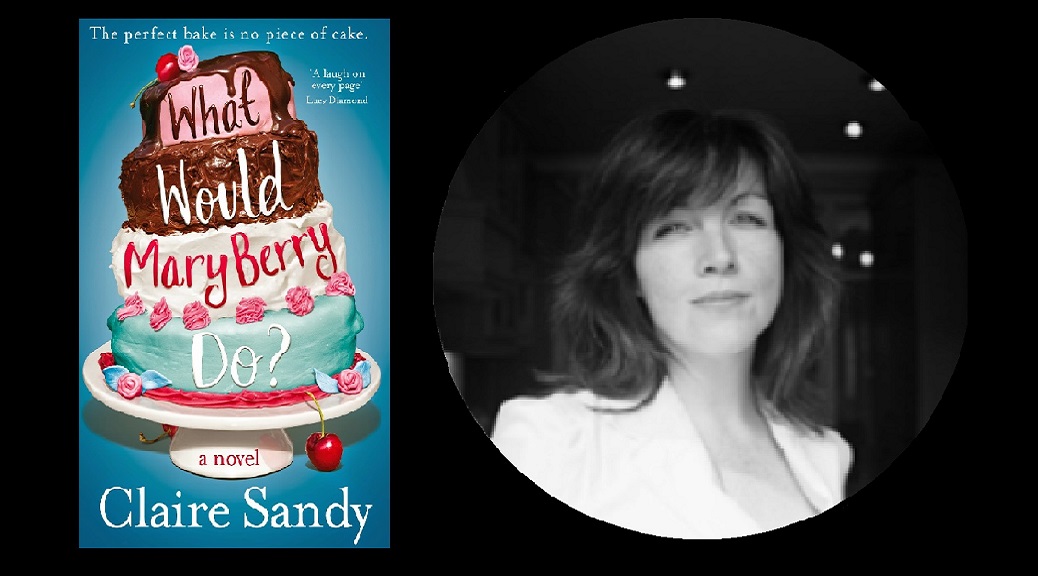Under the pen name Claire Sandy, Bernie Strachan wrote a wonderful book I recently had the pleasure of reviewing. What Would Mary Berry Do? is a delightful tale about a happy family trying to live life in a better way, namely by the female head of the household reaching out to her new found touchstone, the book selling homemaker Mary Berry who is to Marie what idols are to so many: a touchstone of sorts to which we turn when in dire straits, helping us take a step forward in resolving various issues.
I had many questions on my mind when I finished the book, and recently reached out to its author with two in particular. I first asked for her thoughts on the role of the kitchen in bringing together the family and the community, something which we saw happen in her book. I then decided to push my luck and ask her why she chose to go in a very different direction with regards to the competitiveness felt by Marie towards her neighbor. Contrary to how we see these situations often portrayed in the media, her character went beyond her insecurities and developed a strong friendship with this woman she used to think of as her nemesis.
I was delighted when the lovely (and funny!) Bernie Strachan responded with a thoughtful email, which forms today’s guest post.
Bernie Strachan on the Kitchen as the Heart of the Family and the Community and on Female Friendships
Writing a book with the title What Would Mary Berry Do? means that a lot of the action necessarily takes place in one kitchen or another. That thought thrilled me; it reflects life. Doesn’t much of the important stuff take place in the kitchen? In parties, that’s where the best conversations are. Families often only come together over their evening meal. And what better way can a lover express their devotion than by spending all day putting together some sumptuous little something for the object of their devotion? Cosmopolitan magazine can rehash their sex tips ad infinitum, but any lady of my acquaintance would be much more impressed by a delicious meal after a long hard day, than a bed strewn with rose petals.
I have an Irish background and eating is one of the foundation stones of Irish family life. We’re not unusual in this; any culture that loses sight of its love of home cooked food is a culture in trouble. I make chicken casseroles now, and Irish stews and roasts, but none of them live up to the memory of my Mother’s dishes. And that’s the way it should be. I’m not suggesting for one moment that we ate dinner every night, listening to each other with patience, advising, encouraging, smiling. God no – that sounds like perfection and no family achieves that. But we did sit down together, tease each other, try to nick each other’s sausages and just be.
Nowadays, when I meet somebody I like and want to get to know better, the first thing I do is invite them over to dinner. And when I put a meal in front of them, I’m laying down my heart as well.
The lead female characters in What Would Mary Berry Do? manage to overcome their preconceptions of each other. Novels have to involve change. Protagonists have to develop or the reader will grow bored. I remember a beach holiday with a gaggle of aunties; one of them suddenly looked up from her paperback and shouted “Why am I reading this?” and threw it over her shoulder. I live in dread of one of my readers doing the same, so I try and keep the action moving along.
Also, it’s just too easy to be jealous and dislike somebody, isn’t it? When you get to know somebody you understand them better, and you realise that beneath all the privilege there’s a real person struggling to get by, just like, well, you.
In What Would Mary Berry Do?, Marie Dunwoody rather enjoys having a nemesis. Lucy Gray, so petite and organised and good at cakes is the perfect rival. Marie construes every word out of Lucy’s mouth as a criticism, every action as a jibe. Only when Lucy helps her out on New Year’s Eve, when Marie is quite literally on the floor, despairing over her baking, does Marie realise that Lucy is kind. Furthermore, she realises that her neighbour is alone on such a festive night; perhaps her luxurious life isn’t all it seems.
Writing their friendship, once it hit its stride after all the misunderstandings, was one of the joys of the book for me. A strong, supportive gal pal who isn’t afraid to tell you when you’re in the wrong but who will celebrate your achievements and steer you gently away from leggings and crop tops, is one of the main bonuses of being a woman.
First published on Sahar’s Blog on 14 October 2014.


[…] Source: Author Spotlight: Bernie Strachan – Sahar’s Blog […]